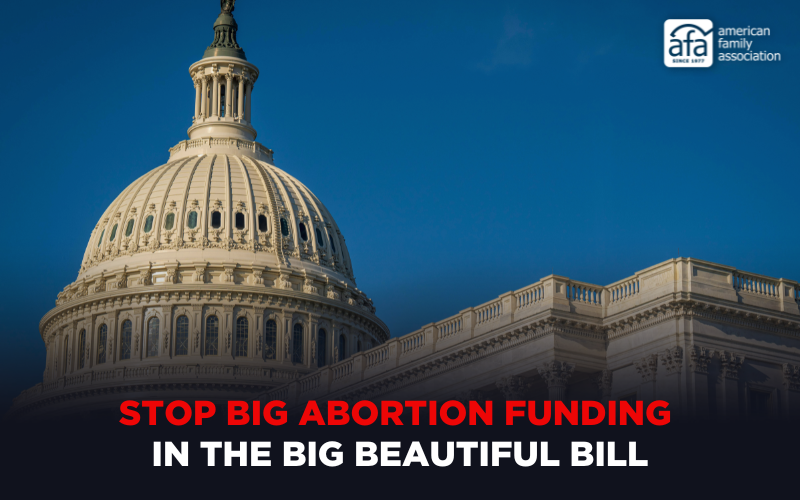Parents’ Consent Not Required
Sign up for a six month free
trial of The Stand Magazine!
New clothes, new backpacks, new computers … there’s a lot to think about as kids go back to school. Even more important is paying close attention to the multiple consent forms schools send out. If parents aren’t careful, they could get locked out of their child’s medical records. Or worse, their child could end up getting health care – such as contraception, an abortion, or vaccinations – parents didn’t authorize.
“My husband is a doctor. If this could happen to me, it could happen to anyone,” warned Gracie Gaspard, a mother from Mississippi.
“It all started when I took my 12-year-old son to the University of Mississippi Medical Center (UMMC),” Gaspard explained. “I was told I had lost access to his MyChart [digital medical records] because he turned 12, and they needed to protect his privacy. They told me it was due to state and federal law, including HIPAA. A friend of mine contacted state Senator Angela Hill. Once Senator Hill got involved, UMMC backed down. Now, they are claiming I will lose access when he turns 14, but that’s still a violation of state law.”
While Gaspard was finally able to view her son’s medical records – for the time being – other parents have not been as fortunate. The federal Health Insurance Portability and Accountability Act (HIPAA) technically “allows” parents to access their children’s medical records, but this protection does not apply “when state or other law prohibits such access” or “if state or other applicable law is silent.”
A confusing patchwork
In many states, parental consent laws for medical care are a confusing patchwork. Louisiana is one example.
“One part of Louisiana’s code says parents ‘should make the decisions regarding the medical, psychiatric, surgical, and preventive health care of the child,’” noted Trey Dellinger, AFA senior legal fellow. “But another code section says if a minor ‘is or believes himself to be afflicted with an illness or a disease … the consent of a parent … shall not be necessary’ if the services are performed by a licensed physician.”
In several states, exceptions are made for what is called a mature minor. A mature minor is one who, in the opinion of the treating health care professional, is old enough to consent to medical care. In some states, statutory law expressly recognizes this exception; in others, the courts have established it.
Generally, the mature minor doctrine applies what is called the “Rule of 7s.” Children under 7 may not consent to treatment, and thus, parental consent is always required. Children between age 7 and 14 are presumed to require parental consent but not always. Children 14 and over are presumed to be able to consent to their own treatment. In effect, this means the age of consent for health care in many states is not age 18, but 14.
Although some states specifically require parental consent for minors to obtain an abortion or contraception, the Title X provision of the federal Public Health Service Act has often been used to override such protections in connection to federally funded “family planning services.”
Recently, the 5th U.S. Circuit Court of Appeals held that Title X does not preempt Texas’ parental consent law. This finding, however, only potentially applies to two other states – Louisiana and Mississippi – and it only applies to Title X funded programs.
A bigger plan
However, the Biden administration is moving quickly to set up something much bigger. Passed in 2022, the federal Bipartisan Safer Communities Act (BSCA) is being used to ensure that children in public schools have access to “comprehensive health care services.” These services are being delivered as part of an existing program called “school-based services” (SBS).
According to the federal Centers for Medicaid and Medicare Services (CMS): “Although schools are primarily providers of education-related activities, the school setting offers a unique opportunity to enroll children in Medicaid and facilitate access to coverage as well as provide health services directly to any Medicaid-enrolled children.”
Medicaid funding is already a major source of revenue for public schools, providing as much as $5 billion a year nationwide.
“If states fully implement the changes recommended [by CMS],” concluded the American Occupational Therapy Association, “it is estimated to increase Medicaid SBS funding to $15 billion to $18 billion a year.”
To provide “comprehensive health care services” to students, the Biden administration is implementing a two-phase approach. The first step requires getting parents out of the way by “streamlining” parental consent. The second step is to “streamline” enrollment so that as many students as possible, likely including illegal aliens, are covered by government-funded health care programs.
As of press time, the administration was well on its way toward accomplishing the latter. A final rule, effective June 3, “simplifies the eligibility and enrollment processes for Medicaid, the Children’s Health Insurance Program (CHIP), and the Basic Health Program (BHP).”
A reason to resist
Although announced with much fanfare in May 2023, the push to eliminate parental consent has hit some snags. The initial idea was to “streamline Medicaid billing permissions for students with disabilities.” Part of the delay is based on objections from providers, but state lawmakers are also asking questions and sponsoring legislation to combat the Biden administration’s efforts.
“The Biden administration is using illegal and unconstitutional rulemaking to undermine the rights of parents to direct their children’s health care,” said Oklahoma state Representative Clay Staires. “I am fighting to protect parents and children. We can’t leave this to the courts. State lawmakers have an obligation to resist bad federal rulemaking that, in this case, directly contradicts our very strong Oklahoma Parents’ Bill of Rights.”
Even good state laws won’t protect the rights of parents who aren’t involved in their kids’ lives. Parents should stop deferring to the “experts”– whether at school or the doctor’s office. Parents are the experts on the well-being of their own kids. They also have a moral and biblical obligation to guide their children, which includes directing their child’s physical and mental health care.
(Digital Editor's Note: This article was published first in the August 2024 print edition of The Stand. Click HERE for a free six-month subscription to The Stand magazine.)

Sign up for a free six-month trial of
The Stand Magazine!
Sign up for free to receive notable blogs delivered to your email weekly.


















